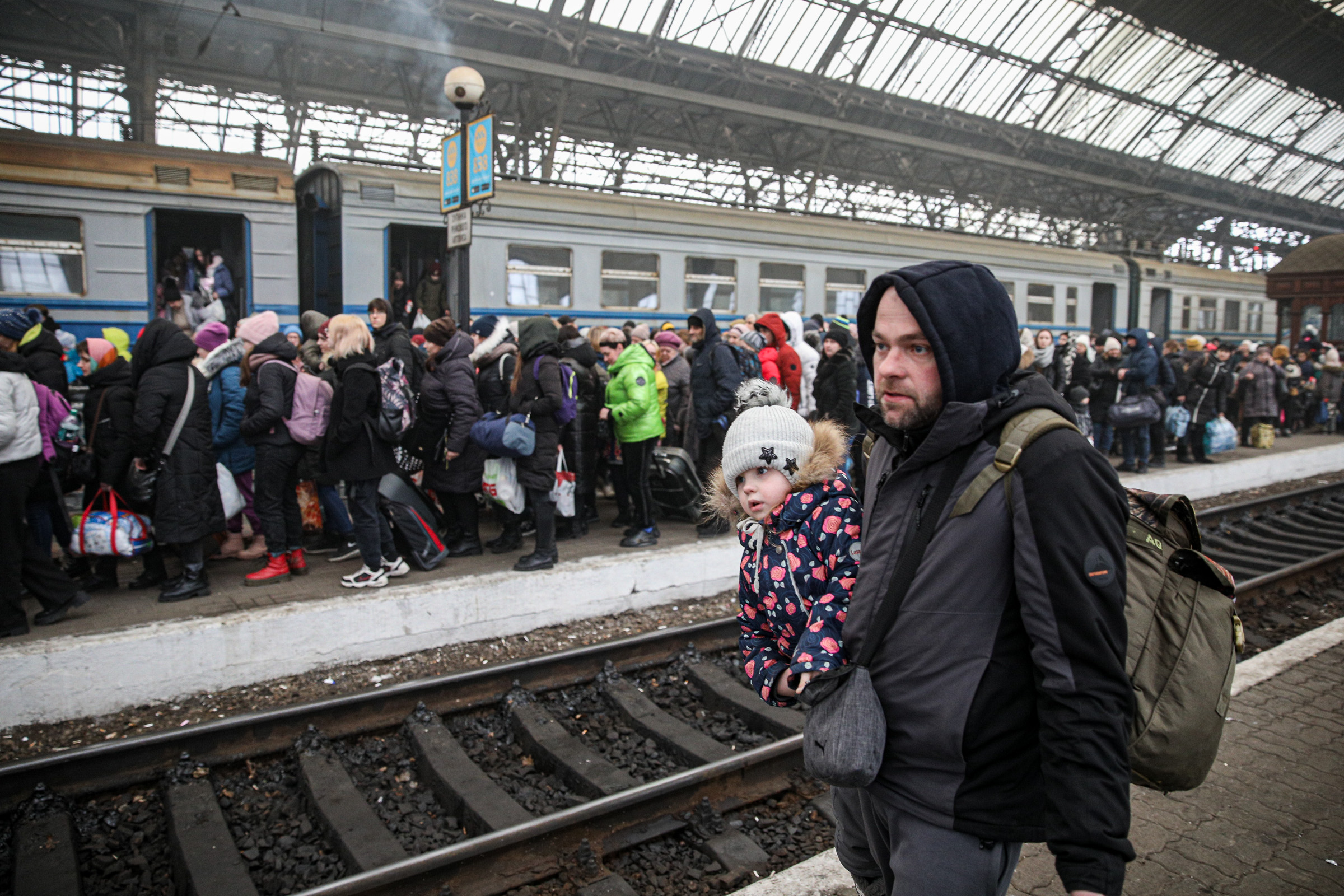As Ukrainian soldiers fight Russia on the front lines, workers at Ukraine’s state employment centers are fighting their own battle: finding jobs for the hundreds of thousands of people who are now unemployed as a result of Russia’s war.
The war has forced the country’s unemployment rate to jump threefold to an “unprecedented” level of 35%, or 5.2 million people, due to a “sharp decline in economic activity and migration from the front-line regions,” according to a recent report published by the National Bank of Ukraine.
The International Labor Organization puts the number of unemployed at closer to 4.8 million, or around 30% of pre-war employment in Ukraine.
Experts say these figures can hardly give a real picture of unemployment in the country. The war has either destroyed thousands of businesses or forced them to close, displacing workers internally and abroad. And in the country’s center and west, the labor market is slowly coming back to life.
Since the start of Russia’s full-scale invasion on Feb. 24, around 10 million people, or more than a third of Ukraine’s population, have either been displaced internally or have become refugees abroad.
Large numbers of people who are out of work are still considered officially employed on paper, according to Tetyana Pashkina, an expert on Ukraine’s labor market. For the first six months of this year, the number of officially registered jobless people was only 656,000, which is 23% less compared to 2021 and a far cry from the millions of people the National Banks says have lost their jobs during the war.
According to Pashkina, many people were never able to register as unemployed as they fled abroad quickly without documents from cities being bombed and shelled en masse by Russia.
What’s more, nearly a fifth of the 15 million people aged 18 to 60 working in the pre-war labor market was estimated to be working in the shadow economy. In some sectors, such as trade, agriculture, and construction, the share of people working unofficially ranged between 40-60%, Pashkina said.
While Pashkina is certain the number of people who have lost their jobs as a result of the war is enormous, she says it is “impossible” to calculate exactly the unemployment rate.
Slow recovery
Despite all the damage and terror Russia has caused in Ukraine, the labor market has slowly started to recover in Ukraine’s central and western regions farther away from the front lines.
According to Arthur Mihno, CEO at Ukraine’s largest job searching online platform Work.ua, in July the number of job vacancies increased by 14% compared to previous month, reaching more than 40,000 openings.
Before the war, usually “there was always a drop” in vacancies during the summer time, he said. However, the number of job posts is still only 38% of the pre-war figure.
Before the invasion, the amount of vacancies at job sites ranged from 100,000 to 120,000. Currently, the figure ranges from 35,000-40,000.
In eastern regions, previously known for metallurgy and mining industries, there are almost no job openings due to heavy hostilities.
War-torn Kharkiv, once one of the busiest cities for business and education in the country, has a modest 670 job offers, 14 times fewer than Kyiv.
At the same time, in western Ukrainian regions, like Lviv and Ivano-Frankivsk, the number has already optimistically reached 80% of pre-war figures, mainly in the hotel and restaurant industry.
“The most difficult period of confusion and mess has already passed,” said Pashkina.
However, experts predict the downward trend in salaries to continue in the long term.
According to a report published by the European Business Association, wages have already been cut by 50% in some industries. Meanwhile, inflation has already reached 20.1%.
But while some companies were forced to cut wages in order to survive during the war, “some employers are trying to benefit from this, but that's another story,” Pashkina said.













